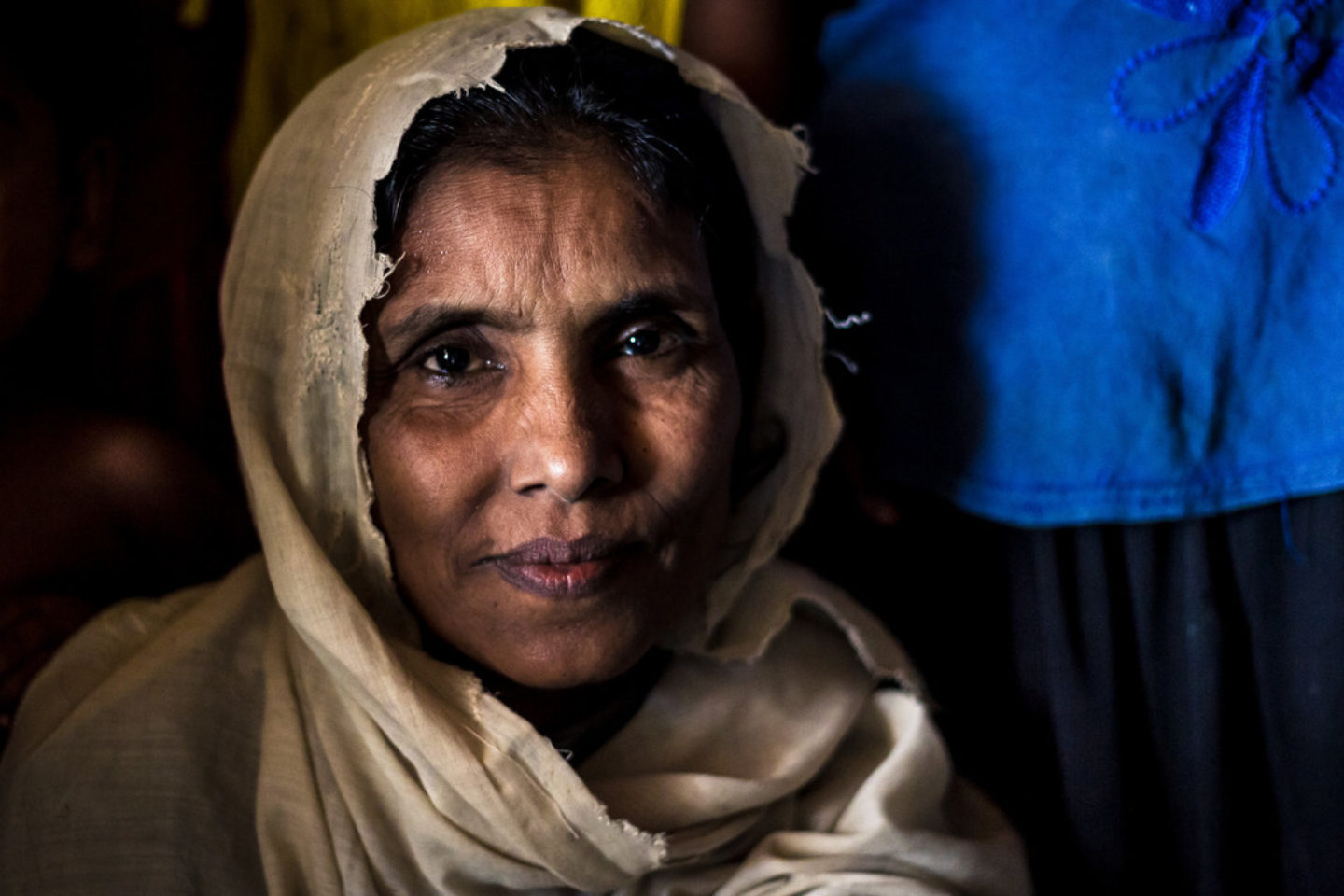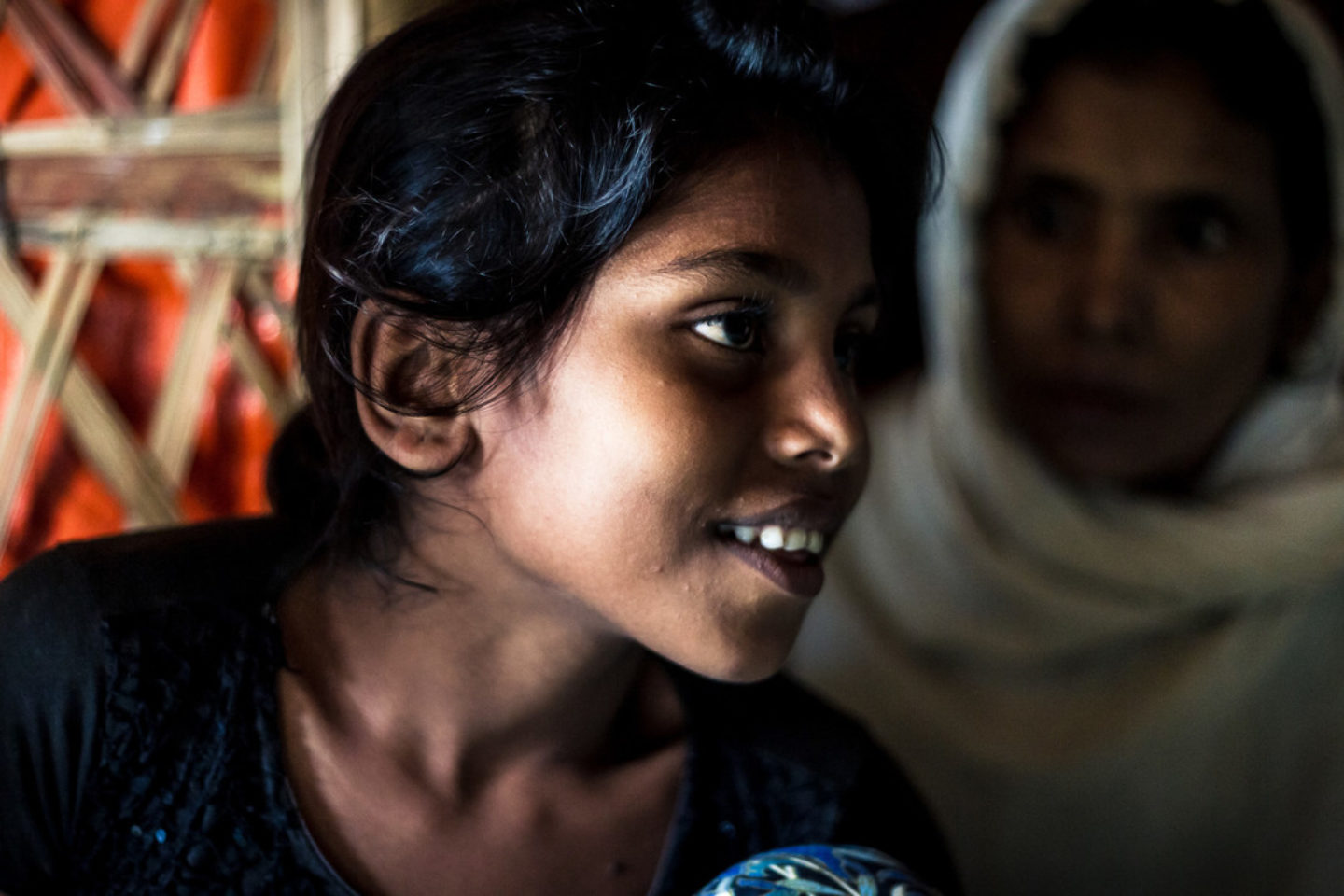Stories from Bangladesh
Anuar Begam: “If help from international agencies stops, what will happen to us?”
Anuar Begam is a 45-year-old mother of six: four daughters and two sons. Here, she recounts how the family fled, what life is like for her family in Bangladesh, and their hopes for the future.
In Myanmar our house was much larger. It was a nice wooden house. We had poultry and other animals living downstairs, and our family lived upstairs. Our business provided us with everything we needed. But there was no hope for us there, there was no freedom. When we saw our village being attacked and burned, we realized we were not safe anymore. We wanted a safe future for our kids; we had no other option but to flee.

Fleeing Myanmar
The journey was extremely difficult. We fled with very few possessions – a few clothes and some rice to survive for a few days. We ran into the forest and hid there for a week. We had a very limited amount of food, it was not enough for the whole family. My little kids were scared and tired of walking. We were mainly moving at night for fear of being arrested.
After one week, we finally arrived in Bangladesh. We first stopped in an area close to the border called Shamlapor Teknaf, before moving into this camp. At that time, the camp was almost empty; this was a forest area. We had to start from scratch. Everything was gone, we had left everything behind. So we cut some wood to build this house. But we lacked materials to build a strong, safe house.
World Concern and Medair gave us some material to reinforce our house and make it stronger during the monsoon season. They explained to us how to use the plastic sheets and ropes to tie down the house and make it more resilient. Now our house is better; water doesn’t come in anymore and we felt safer during the rainy season. But if we have to stay here for a long time, this house is not strong enough; it will not stand if a cyclone comes.
Life in the camp
We depend on international organisations for food and to survive. But the rations we receive are not enough for the whole family. We don’t have any income. Our men have no work here, and they need to work to earn some money.
Sometimes I am really worried. If the help from international agencies stops, what will happen to us?

My family is my strength. When we are all together, I feel happy. During the two Eid (Muslim religious festivals) we all gather here in the camp, and cook together. I feel happy. I feel safe. We don’t have much here, but we can pray. We can send our children to school. We don’t live in fear.
Myanmar is our country, it will always be
Myanmar is our country, it will always be. We want to go back there one day.
But we cannot go back if we cannot have our freedom back. Too many problems are unresolved. During the months before we fled, life was impossible there. We were not allowed to pray, we could not give our children a proper education. We had no opportunities there.
I hope that one day my children will be able to go back and live peacefully in their home country.
As part of the shelter program in Kutupalong Refugee Camp, Medair and World Concern distributed more than 5,000 upgraded shelter kits and another 5,000 tie-down kits to help refugees to reinforce their shelters before the monsoon season. Medair also worked on site improvement of public buildings such as schools, clinics, and public infrastructures such as pedestrian roads and drainage areas.
Photo by Medair/Tam Berger
